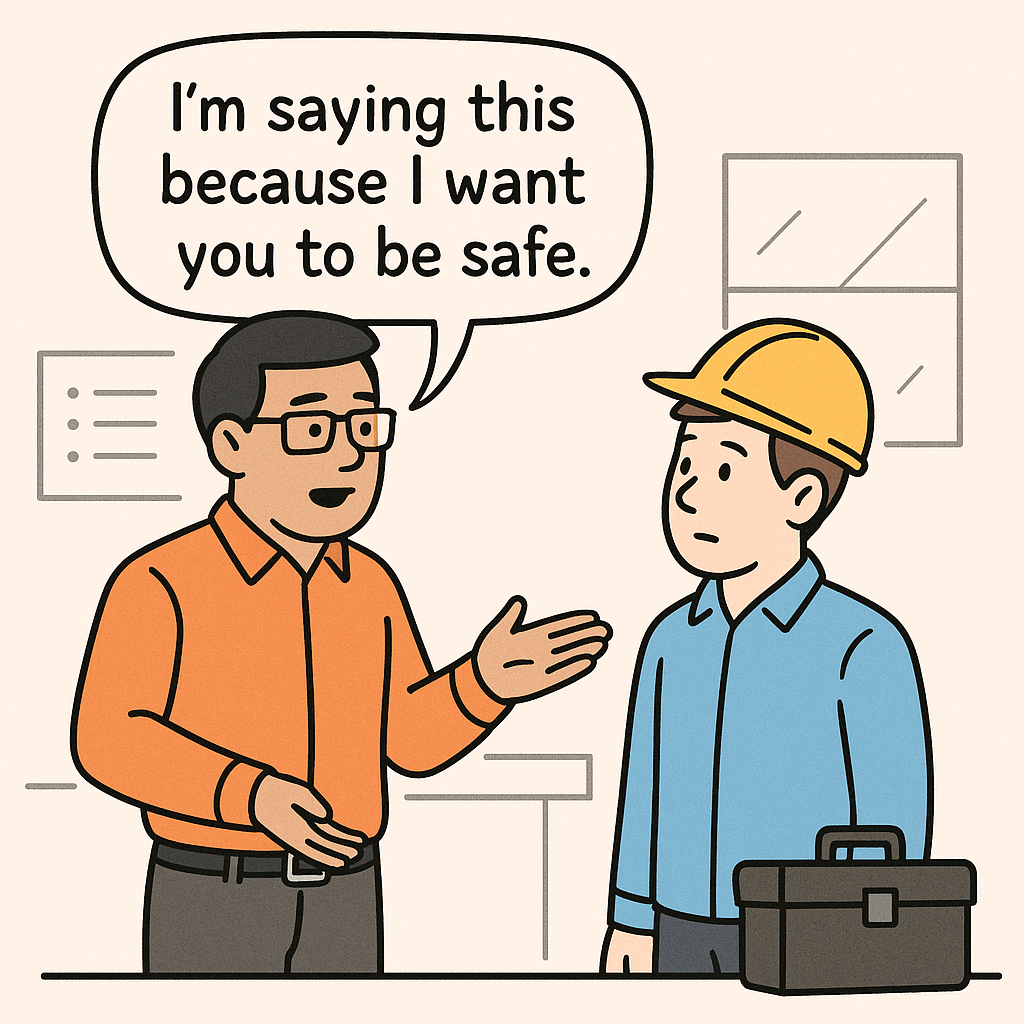Radical Candor Meets Safety: How Honest Conversations Can Save Lives at Work

In high-hazard industries, silence can be dangerous. Too often, workers hesitate to speak up about safety concerns, and leaders fail to give direct feedback that could prevent an injury or even save a life. Radical Candor, a management philosophy by Kim Scott, offers a framework that can transform safety culture by encouraging open communication grounded in care and honesty.
What is Radical Candor?
At its core, Radical Candor means "Caring Personally while Challenging Directly.” It’s about creating an environment where people feel safe being honest—with themselves, with their team, and with leadership.
In the book, the author breaks communication down into four quadrants: Radical Candor, Ruinous Empathy, Obnoxious Aggression, and Manipulative Insincerity.
Radical Candor means that you care personally and challenge directly. This is the best option. Ruinous Empathy means that you care personally, but don’t challenge others, and this can lead to unaddressed risks. Obnoxious Aggression means that you challenge, but without truly caring, and this leads to damaged trust. Manipulative Insincerity, the worst of the quadrants, means that you neither care nor challenge. In safety, this can lead to devasting outcomes.
When applied to occupational safety and health, Radical Candor can help move teams from a compliance mindset to a culture of proactive care and accountability.
To start applying the idea of radical candor to your safety program, encourage open dialogue around hazards. Next, create routine check-ins where workers can share concerns without fear of retaliation. When a near miss or unsafe behavior is observed, respond with radical candor: “I’m telling you this because I care about your well-being, and I don’t want anyone getting hurt.”
Always strive to give clear, actionable feedback.Instead of vague corrections like “Be more careful,” try: “I noticed you skipped the lockout step. That’s critical, and I need you to follow it every time so no one gets hurt—including you.”
To encourage more psychological safety, it's important to model it yourself. Supervisors and safety leaders should be open to feedback about their own practices.
When facing complacency, proceed wuith caution. When risks become normalized, complacency often grows. Radical Candor gives you a tool to call that out without blame: “I know we’ve all done it that way, but the data shows it’s unsafe. Let’s find a better process together.” Try replacing blame with growth conversations. When an incident happens, shift from finger-pointing to mutual learning: “Let’s walk through what happened. I want to understand so we can prevent this in the future—not to assign blame, but to protect everyone.”
Radical candor can work because workers are more likely to listen when they feel respected. Leaders are more trusted when they balance accountability with genuine concern. And teams thrive when safety becomes a shared responsibility rather than a set of rules to follow.
The lessons found in Radical Candor do not just apply to management but with a few small tweaks, they can be a powerful tool for protecting health and lives. When leaders show they care and speak directly, safety becomes not just a priority, but a value woven into every conversation.
Leave a comment
Comments will be approved before showing up.




